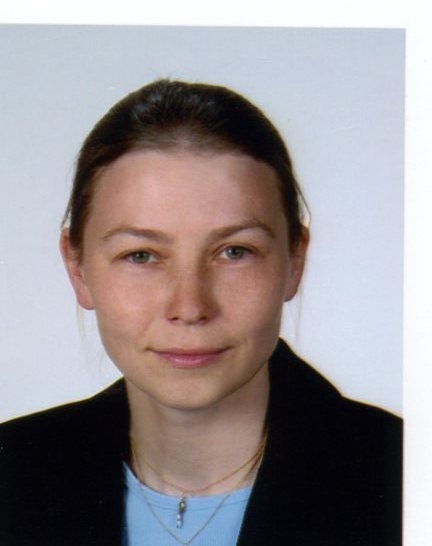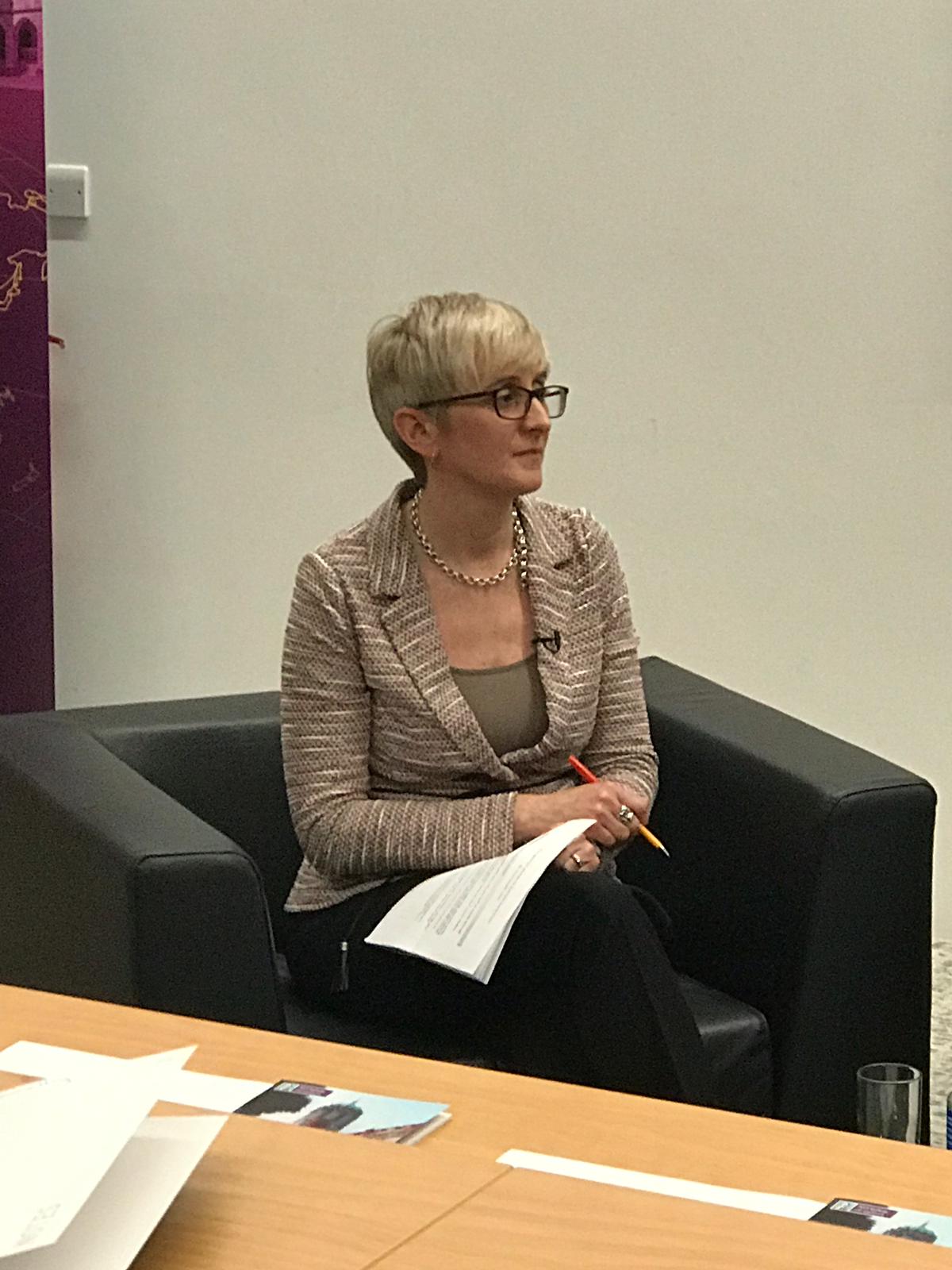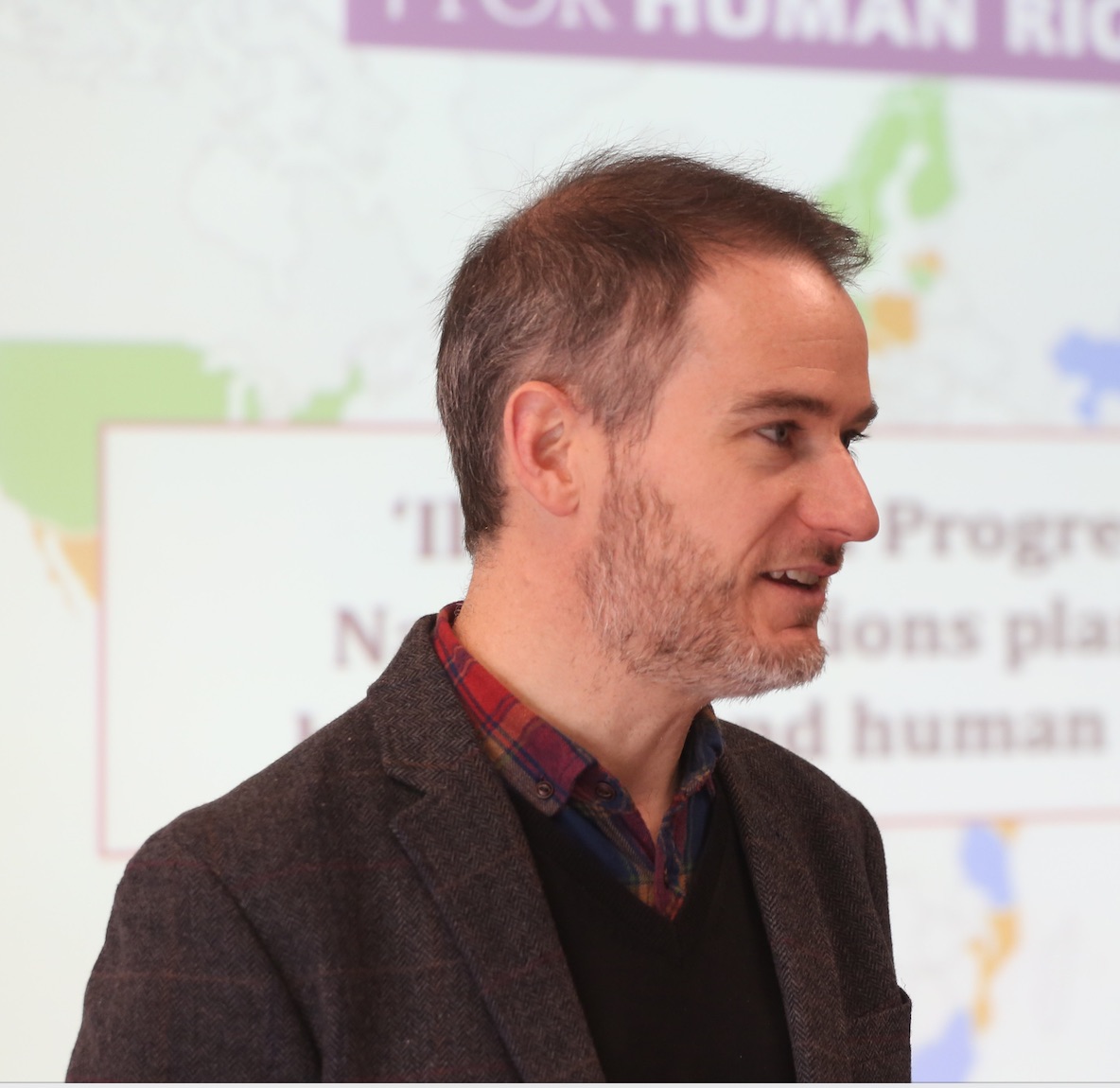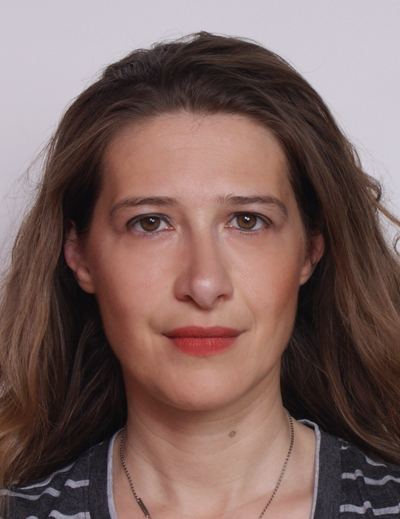-
Courses

Courses
Choosing a course is one of the most important decisions you'll ever make! View our courses and see what our students and lecturers have to say about the courses you are interested in at the links below.
-
University Life

University Life
Each year more than 4,000 choose University of Galway as their University of choice. Find out what life at University of Galway is all about here.
-
About University of Galway

About University of Galway
Since 1845, University of Galway has been sharing the highest quality teaching and research with Ireland and the world. Find out what makes our University so special – from our distinguished history to the latest news and campus developments.
-
Colleges & Schools

Colleges & Schools
University of Galway has earned international recognition as a research-led university with a commitment to top quality teaching across a range of key areas of expertise.
-
Research & Innovation

Research & Innovation
University of Galway’s vibrant research community take on some of the most pressing challenges of our times.
-
Business & Industry

Guiding Breakthrough Research at University of Galway
We explore and facilitate commercial opportunities for the research community at University of Galway, as well as facilitating industry partnership.
-
Alumni & Friends

Alumni & Friends
There are 128,000 University of Galway alumni worldwide. Stay connected to your alumni community! Join our social networks and update your details online.
-
Community Engagement

Community Engagement
At University of Galway, we believe that the best learning takes place when you apply what you learn in a real world context. That's why many of our courses include work placements or community projects.
International Human Rights (LLM)
Course Overview
Join our online Irish Centre for Human Rights LLM Information Session on Thursday 23rd May at 3pm (GMT) which will include details on all the LLM courses that the centre offers. Register Now
The LLM in International Human Rights Law provides students with a comprehensive insight into international and regional legal frameworks of human rights protection. This is an interdisciplinary programme where students are engaged students in the practice and public policy context of human rights law on a local, national and international perspective.
This LLM will be of interest to students and practitioners from a range of different fields such as law, social policy, political science, public administration and development. While the programme’s emphasis is on the law and policy of human rights, suitably qualified candidates from non-law backgrounds are strongly encouraged to apply.
Students participate in a dynamic programme of seminars, workshops and conferences with world-leading practitioners and scholars. Coursework begins with an in-depth study of the international human rights system and selected issues of international human rights law. Specialised courses in business and human rights, international migration law, refugee protection, international humanitarian law, international criminal law, minority rights and rights of indigenous peoples, gender and human rights, counter-terrorism and human rights, and child rights. Completing a 15,000-word research thesis in the field of international human rights law is also a requirement. A wide range of subject choices is available to students, drawing on the expertise of our full time staff and prestigious adjunct faculty.
Course highlights:
- The Irish Centre for Human Rights is one of the world’s premier university-based institutions for the study and promotion of human rights.
- Global Legal Action Network (GLAN) and the Irish Centre for Human Rights have established a partnership which affords selected students the opportunity for hands-on engagement with human rights litigation and advocacy globally.
- An International Human Rights Law Clinic provides students with unique practical training on mobilising human rights standards to secure reform, engaging human rights bodies, at UN and regional levels.
- Field trips to the International Criminal Court in The Hague and to military barracks of the Irish Defence Forces.
- Career Support with assistance in seeking career and work placement opportunities by drawing on the expertise of a global network of alumni and an outstanding network of contacts.
- Expert Lecturers deliver programme modules. Our academics are internationally recognised human rights scholars with world-class expertise and reputations.
- Unique programme focusing on the practice of human rights through specialised modules including international human rights, public policy, law and advocacy.
- Skills development through a strong clinical focus on core human rights lawyering in advocacy, strategic litigation, human rights fact-finding, international diplomacy and public policy.
- Seminars, conferences and workshops ensures engagement with world-leading practitioners and scholars in the field of human rights law and public policy.
- Assessment is primarily through research papers, presentations and minor thesis rather than exams.
Applications and Selections
Applications are made online via the University of Galway Postgraduate Applications System.
Who Teaches this Course
In addition, every year we have a number of courses taught by adjunct and visiting lecturers.

E: ekaterina.yahyaoui@universityofgalway.ie
View Profile

Irish Centre For Human Rights
NUI Galway
View Profile

E: maeve.orourke@universityofgalway.ie
View Profile

Tower 2
Arts/Science Concourse
School of Law
University of Galway
View Profile

School of Law
TB407
Arts/Science Building
NUI Galway
View Profile
Irish Centre for Human Rights
NUI Galway
View Profile

E: ioanna.tourkochoriti@nuigalway.ie
View Profile
Requirements and Assessment
Assessment for individual modules includes a combination of essays, presentations and group work, as well as other methods. Students must also complete a research thesis/dissertation of 20,000 words.
Key Facts
Entry Requirements
- The Irish Centre for Human Rights welcomes students with a Level 8 (or equivalent) undergraduate degree in a range of disciplines including law, political science, social sciences and humanities.
- In cases where applicants come from a non-law background, the Irish Centre for Human Rights will consider academic background, relevant work experience, references and a personal statement.
- Applicants must normally have attained at primary degree level a result of Second Class Honours Grade 1 (2.1) or equivalent. However, those falling short of this standard may be considered where they can demonstrate other appropriate academic accomplishments as well as relevant work experience.
- International students should refer to the country-specific information section of the International Office website.
Additional Requirements
Recognition of Prior Learning (RPL)
Applicants must normally have attained at primary degree level a result of Second-Class Honours Grade 1 (2.1) or equivalent. However, those falling short of this standard may be considered where they can demonstrate other appropriate academic accomplishments as well as relevant work experience.
Duration
1 year, full-time; 2 years, part-time
Next start date
September 2024
A Level Grades ()
Average intake
25
QQI/FET FETAC Entry Routes
Closing Date
Please view the offer rounds website.
NFQ level
Mode of study
ECTS weighting
90
Award
CAO
Course code
LLM-IHR
Course Outline
The one-year programme is divided into three four-month terms. The first term commences in September and runs through to December, the second term begins in January and ends in April, while the third term begins in May and terminates with the submission of a dissertation at the end of August. During the first two terms candidates are required to attend a full course load as prescribed in the Guidelines, while the third term is devoted entirely to the research required for the preparation of the final dissertation.
The two-year programme comprises part-time study, combining two semesters of course work the first year with a third semester the second year, devoted entirely to the research required for preparation of a final dissertation.
The coursework begins with a general introduction to the systems and documents of international human rights law, and proceeds to a series of specialised courses in such areas as minority rights law, regional human rights systems such as the European Convention on Human Rights, criminal prosecution by international tribunals of human rights violators, gender and child rights, refugees and asylum seekers, and international humanitarian law. The course emphasises the analysis and critique of international human rights law and legal regimes.
A full list of modules is available at: www.universityofgalway.ie/irish-centre-human-rights/academics/llmprogrammes/modules. Course and module offerings and details are subject to change, but may include the following list:
- Advanced Comparative Law
- Business and Human Rights
- Children's Rights
- Conflict and Post-Conflict
- Counter-Terrorism and Human Rights
- Economic, Social & Cultural Rights
- European Convention on Human Rights
- European Union and Human Rights
- Gender and Human Rights
- Human Rights, Sexual Orientation and Gender Identity
- Human Rights Field Work: Law and Practice
- Islam and Human Rights
- International Criminal Law
- International Criminal Procedure
- International Humanitarian Law
- Introduction to Human Rights Law
- Minority Rights
- Peace Support Operations
- Public International Law
- Procedure before International Criminal Courts
- Refugee Protection
- Right to Development
- Transitional Justice
Module details for the Full-Time course
Module details for the Part-Time course
Curriculum Information
Curriculum information relates to the current academic year (in most cases).Course and module offerings and details may be subject to change.
Glossary of Terms
- Credits
- You must earn a defined number of credits (aka ECTS) to complete each year of your course. You do this by taking all of its required modules as well as the correct number of optional modules to obtain that year's total number of credits.
- Module
- An examinable portion of a subject or course, for which you attend lectures and/or tutorials and carry out assignments. E.g. Algebra and Calculus could be modules within the subject Mathematics. Each module has a unique module code eg. MA140.
- Subject
- Some courses allow you to choose subjects, where related modules are grouped together. Subjects have their own required number of credits, so you must take all that subject's required modules and may also need to obtain the remainder of the subject's total credits by choosing from its available optional modules.
- Optional
- A module you may choose to study.
- Required
- A module that you must study if you choose this course (or subject).
- Required Core Subject
- A subject you must study because it's integral to that course.
- Semester
- Most courses have 2 semesters (aka terms) per year, so a three-year course will have six semesters in total. For clarity, this page will refer to the first semester of year 2 as 'Semester 3'.
Year 1 (90 Credits)
Optional LW561: Mental Health Law and Policy - 10 Credits - Semester 1Optional LW562: Regional Disability Law and Policy - 10 Credits - Semester 1
Optional LW558: Legal Capacity Law and Policy - 10 Credits - Semester 1
Optional LW556: Law and Policy on Independent Living - 10 Credits - Semester 1
Optional LW553: Inclusive Education Law and Policy - 10 Credits - Semester 1
Optional LW551: Contemporary Challenges in Disability Law and Policy - 10 Credits - Semester 1
Optional LW550: Advocacy and Access to Justice - 10 Credits - Semester 1
Optional LW5106: Economic Social and Cultural Rights - 5 Credits - Semester 1
Optional LW5107: International Child Rights - 5 Credits - Semester 1
Optional LW5105: Contemporary Issues in International Migration Law - 10 Credits - Semester 1
Optional LW5103: Islam and Human Rights I - 5 Credits - Semester 1
Optional LW5104: Islam and Human Rights II - 10 Credits - Semester 1
Optional LW5110: International Human Rights Law Clinic - 10 Credits - Semester 1
Optional LW5109: European Migration Law - 5 Credits - Semester 1
Optional LW5111: Business and Human Rights 2 - 10 Credits - Semester 1
Optional LW5112: Human Rights and Global Governance - 5 Credits - Semester 1
Optional LW5113: The Common European Asylum System - 5 Credits - Semester 1
Optional LW5114: International Refugee Law - 10 Credits - Semester 1
Optional LW538: Transitional Justice - 10 Credits - Semester 1
Optional LW530: Procedure Before International Criminal Courts - 5 Credits - Semester 1
Optional LW525: Counter-Terrorism and Human Rights - 5 Credits - Semester 1
Optional LW5101: International Disability Human Rights Clinic - 10 Credits - Semester 1
Optional LW455: Minority Rights - 5 Credits - Semester 1
Optional LW471: International Humanitarian Law - 10 Credits - Semester 1
Optional LW439: Advocacy, Activism and Public Interest Law - 10 Credits - Semester 1
Optional LW5116: Gender and Human Rights - 10 Credits - Semester 1
Optional LW5118: Public International Law - 10 Credits - Semester 1
Optional LW5119: The Politics of Law - 10 Credits - Semester 1
Optional LW5120: European Convention on Human Rights: Law and Politics - 10 Credits - Semester 1
Optional LW5121: Transnational Lawyering - 5 Credits - Semester 1
Optional LW5122: International Criminal Law - 10 Credits - Semester 1
Optional LW5123: International Peace Operations - 10 Credits - Semester 1
Optional LW5124: Climate Justice - 5 Credits - Semester 1
Optional LW5125: International Criminal Law: Issues and Application - 10 Credits - Semester 1
Optional LW552: Foundational Theoretical Framework in Disability Law and Policy - 10 Credits - Semester 1
Optional LW5126: Critical Race Theory and Human Rights - 5 Credits - Semester 1
Optional LW483: Advanced Legal Research & Method - 10 Credits - Semester 1
Optional LW491: Equality Law: Principles & Thematic Application - 10 Credits - Semester 1
Optional LW5209: Legal Skills: Commercial Practice, Advocacy and Dispute Resolution - 10 Credits - Semester 1
Optional LW5205: Advanced Intellectual Property Law and Development - 10 Credits - Semester 1
Optional LW5203: Advanced Comparative Law - 10 Credits - Semester 1
Optional LW5206: Global Issues in Contemporary Labour Law - 10 Credits - Semester 1
Optional LW5208: European Consumer Law and Policy - 10 Credits - Semester 1
Optional LW5211: EU External Relations Law - 10 Credits - Semester 1
Optional LW5212: Vis Moot - 10 Credits - Semester 1
Optional LW575: Crime and Disorder - 10 Credits - Semester 1
Optional LW5214: Imprisonment and Rights - 10 Credits - Semester 1
Optional LW486: Theories of Judicial Activism - 10 Credits - Semester 1
Optional LW5201: EU Competition Law - 10 Credits - Semester 1
Optional LW5204: International Commercial Property Law - 10 Credits - Semester 1
Optional LW5210: Commercial Law in Context - 10 Credits - Semester 1
Required LW5117: International Human Rights Law - 10 Credits - Semester 1
Required LW450: Dissertation - 30 Credits - Semester 1
Optional LW546: Contemporary Issues in Human Rights III - 5 Credits - Semester 1
Optional LW417: Contemporary Issues in Human Rights II - 10 Credits - Semester 1
Optional LW475: Field Experience Assignment - 15 Credits - Semester 1
Optional LW547: Human Rights Field Work: Law and Practice - 5 Credits - Semester 1
Why Choose This Course?
Career Opportunities
The programme equips students to pursue careers with international organisations, United Nations (UN) bodies, international NGOs, in international or national legal practice, and policy, advocacy or research work. Students may also decide to work in government, diplomacy or international affairs. The programme will also provide a foundation for further studies through the structured PhD in human rights offered by the Irish Centre for Human Rights.
Students who have undertaken and successfully completed the programme tend to fall into one of four categories:
- those who work within UN or UN affiliated organisations
- those who work in NGOs and quasi NGOs—both human rights and development
- those who work in academic institutions or pursue of PhD/JD
- those who work in diplomatic or government based work (in human rights divisions of the Department of Foreign Affairs, for example).
Underneath these umbrella categories, students have pursued work in the ICC, Amnesty International, Human Rights Watch, ICRC, the UN system (Geneva and NYC), local based NGOs, trade and health organisations, domestic law firm work that draws on international legal mechanisms, and research based work in University research centres, to name but a few. The main and sub categories are by no means exhaustive, but give a flavor of the different fields that students have pursued.
Who’s Suited to This Course
Learning Outcomes
Transferable Skills Employers Value
Work Placement
Study Abroad
Related Student Organisations
Course Fees
Fees: EU
Fees: Tuition
Fees: Student levy
Fees: Non EU
Postgraduate students in receipt of a SUSI grant—please note an F4 grant is where SUSI will pay €4,000 towards your tuition (2023/24). You will be liable for the remainder of the total fee. An F5 grant is where SUSI will pay tuition up to a maximum of €6,270. SUSI will not cover the student levy of €140.
Postgraduate fee breakdown = Tuition (EU or NON EU) + Student levy as outlined above.
Note to non-EU students: learn about the 24-month Stayback Visa here.
Find out More
Professor Siobhán Mullally
Programme Director
E: siobhan.mullally@universityofgalway.ie
Queries about this and other LLM programmes in the School of Law can also be directed to lawpostgrad@universityofgalway.ie.
What Our Students Say
-(4).png)
Cassie Roddy-Mullineaux | Data Rights Solicitor, AWO Agency
I completed the BA and LLB at University of Galway and trained as a solicitor before returning to University of Galway to study the LLM in International Human Rights. Completing the LLM in International Human Rights completely changed my outlook on legal practice and how I wanted to contribute as a lawyer. Through the Irish Centre for Human Rights partnership with Global Legal Action Network (GLAN), I secured a legal research placement working on business-related human rights abuses. I also had the opportunity to participate in the Human Rights Law Clinic module where I worked on the ‘My Data Rights’ project, an online resource to help survivors of historical and institutional abuses in Ireland use the GDPR to access their personal data. I'm extremely grateful to the Irish Centre for Human Rights and University of Galway School of Law for the generous support of the staff and community who afforded me so many opportunities during the LLM and have truly helped to shape my legal career. The knowledge and skills I gained in the LLM no doubt helped me to secure my current role as a Data Rights Lawyer at AWO, where I advise clients on a wide range of data and privacy issues.

Yassin Osman | Programme Lawyer at IBAHRI
I am currently acting as Programme Lawyer for the Africa and Middle East Regions at the International Bar Association’s Human Rights (IBAHRI). After completing my master’s degree in International Human Rights Law at the Irish Centre for Human Rights, University of Galway, in 2020, I pursued different prospects, including working as a fact-check writer at Misbar, and interning at the UN OHCHR for Southern Africa and at the IBAHRI, before formally joining the team in London. Since then, I have had amazing learning opportunities such as field missions to Cameroon and Tunisia and working with states, special rapporteurs, international experts, and other lawyers, which has helped me grow tremendously. Studying at the ICHR married my theoretical knowledge of the law and personal experiences growing up in South Africa and Sudan, with practical and grounded approaches that are applied in my everyday work. It also made me realise that human rights issues do not exist in isolation and necessitate critical thinking that considers histories and different perspectives in order to truly and accurately reflect the best path forward in manifesting a better world.

Rowan Hickie | Project Coordinator at GlobalChild
During my LLM in International Human Rights, I had the opportunity to learn from incredible professors at the Irish Centre for Human Rights while also exploring various areas of international human rights law. Through the program, I discovered my passion for children's rights which has shaped the trajectory of my career. After finishing my LLM in 2021, I returned home to Canada. I quickly found work as a researcher for the Alberta Civil Liberties Research Centre, where I conducted research on both Canadian and international human rights law. While working at the Centre, I also volunteered with the international children's rights organization GlobalChild on their InspiRights project. After volunteering with GlobalChild for 6 months, I applied for and secured a Project Coordinator position with the organization. In this new role, I will be responsible for coordinating the InspiRights project and preparing academic research papers with the organization's Director. My LLM degree has been instrumental in my career, providing me with a strong foundation of skills and a wide network of peers. I am excited to use the skills I learned during my LLM throughout my career.
2023 QS Subject Rankings: Top 150
.png)











.png)








